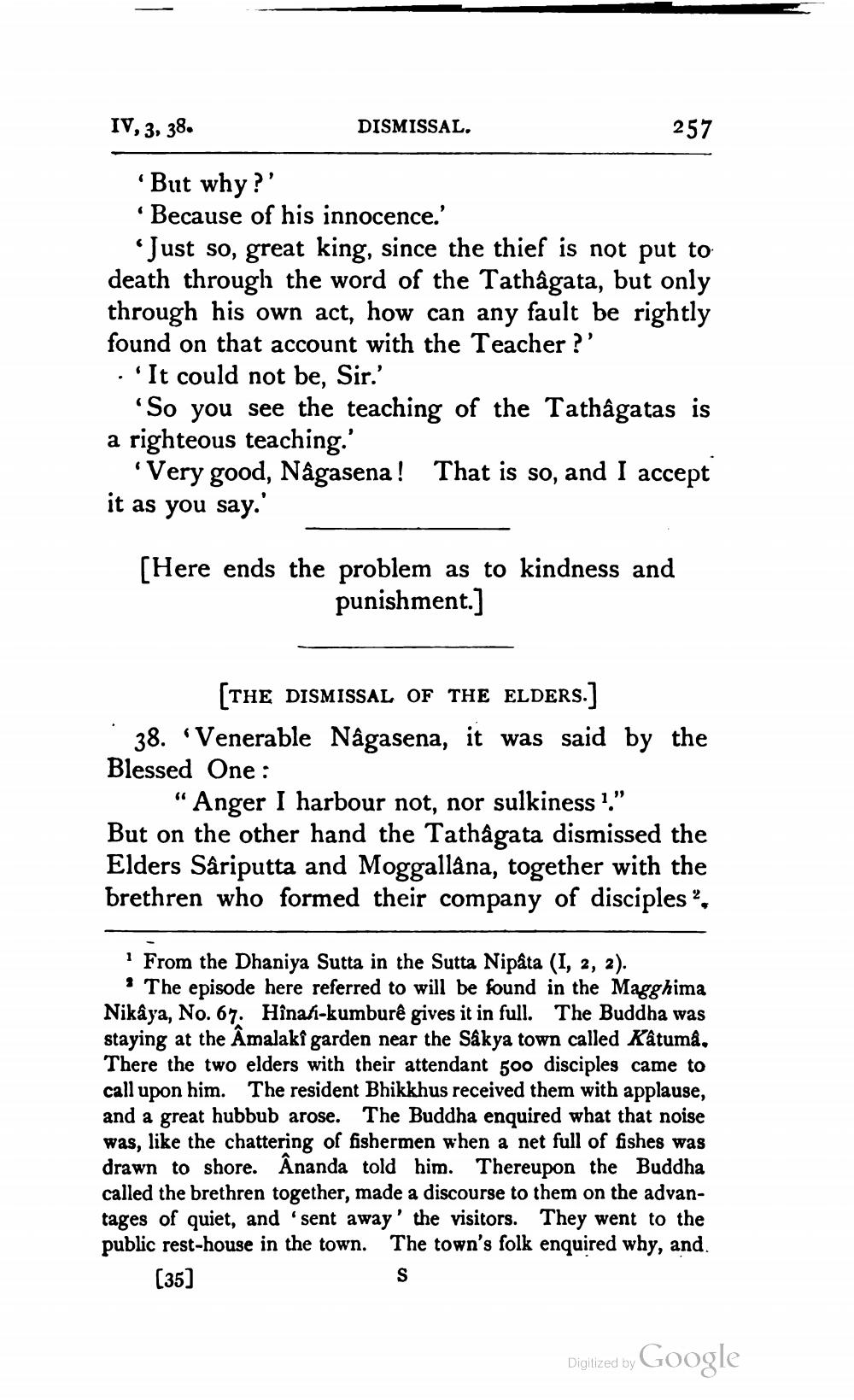________________
IV, 3, 38.
DISMISSAL.
257
But why?' Because of his innocence.'
Just so, great king, since the thief is not put to death through the word of the Tathagata, but only through his own act, how can any fault be rightly found on that account with the Teacher ?' . It could not be, Sir.'
So you see the teaching of the Tathagatas is a righteous teaching.'
Very good, Nagasena! That is so, and I accept it as you say.'
[Here ends the problem as to kindness and
punishment.]
(THE DISMISSAL OF THE ELDERS.] 38. Venerable Nâgasena, it was said by the Blessed One:
"Anger I harbour not, nor sulkiness ?." But on the other hand the Tathagata dismissed the Elders Sâriputta and Moggallâna, together with the brethren who formed their company of disciples”,
From the Dhaniya Sutta in the Sutta Nipata (I, 2, 2). : The episode here referred to will be found in the Magghima Nikâya, No. 67. Hinafi-kumburê gives it in full. The Buddha was staying at the Âmalaki garden near the Sakya town called Kâtuma, There the two elders with their attendant 500 disciples came to call upon him. The resident Bhikkhus received them with applause, and a great hubbub arose. The Buddha enquired what that noise was, like the chattering of fishermen when a net full of fishes was drawn to shore. Ananda told him. Thereupon the Buddha called the brethren together, made a discourse to them on the advantages of quiet, and sent away' the visitors. They went to the public rest-house in the town. The town's folk enquired why, and.
(35]
Digitized by Google




